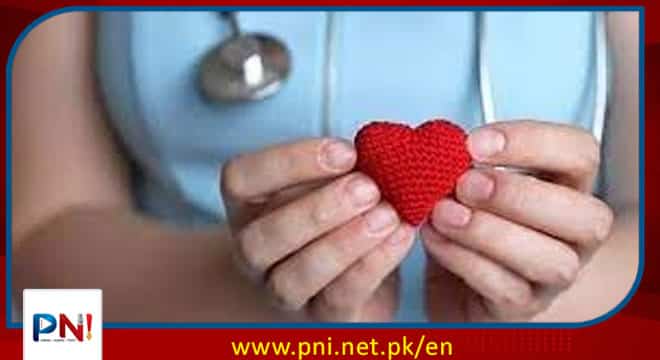ISLAMABAD, May 29 (Online): Heart failure (HF) is a medical condition in which the heart muscle does not pump enough blood. One of the major causes of reduction in heart’s ability to pump blood is coronary artery disease (CAD) and heart attack. However, faulty heart valves, chronic blood pressure, or genetic disease can also be a cause of HF.
Dr. Daljeet Kaur Saggu, Senior Consultant Cardiologist and Electrophysiologist, AIG Hospital, Hyderabad says, “The body depends on the heart’s pumping action to deliver oxygen- and nutrient-rich blood to the body’s cells. With HF, the weakened heart can’t supply the cells with enough blood. This results in fatigue and shortness of breath, and some people experience excessive coughing. Everyday activities such as walking, climbing stairs, or carrying groceries can become very difficult.
According to the Indian Heart Association, 50 percent of heart failure in Indian men occurs under 50 years of age and women have high mortality rates from cardiac disease.”
To efficiently manage the condition, it is crucial to be aware of several misconceptions about heart failure that must be busted.
Myth 1: heart failure means your heart has stopped working
HF does not imply that the heart will stop beating suddenly and without any prior symptoms. In fact, there are several signs and symptoms associated with HF. Breathlessness is one of these symptoms, which can occur when exercising or even just lying in bed. Other symptoms include ankle swelling and abdominal bloating. While some people might also experience fatigue or loss of appetite. Nowadays, an armamentarium of medicines and devices are present to manage HF and improve outcomes.
Myth 2: it is same as heart attack
“Both HF and heart attacks are types of cardiac disease. While they share similar causes, they differ in many ways. HF is the inability of the heart muscles to pump blood efficiently to meet the body’s needs, while a heart attack occurs when there is a blockage of the blood supply to the heart,” says Dr. Saggu.
Myth 3: there’s nothing you can do to get better after being diagnosed with heart failure
Although heart failure is a serious condition, it can be managed with the right treatment and regular cardiologist consultations. Additionally, with the advancement in medical technologies patients with severe HF can also be treated. When a patient is experiencing abnormal heart rhythm which can be life threatening, implantable defibrillators, or ICDs give an electric shock to the heart to save the patient’s life. Some patients may also experience HF with abnormal conduction of the electrical system of the heart, which alters how efficiently the heart beats. In such a situation, Cardiac resynchronization therapy (CRT), also known as biventricular pacing, may be recommended. A particular pacemaker is used in this treatment to make the ventricles contract more properly and in synchrony.
This therapy can enhance cardiac function, lower the risk of hospitalisation, and increase survival.
According to Dr. Saggu, “Heart transplants are performed when other treatments for heart problems haven’t worked, leading to heart failure.
For some people who cannot have a heart transplant, another option may be a ventricular assist device (VAD). A VAD is a mechanical pump implanted in your chest that helps pump blood from the lower chambers of your heart (ventricles) to the rest of your body.”
“The information in this article is for educational purposes only and not meant to provide any medical or clinical advice. Please consult your doctor for more information.”
Follow the PNI Facebook page for the latest news and updates.









